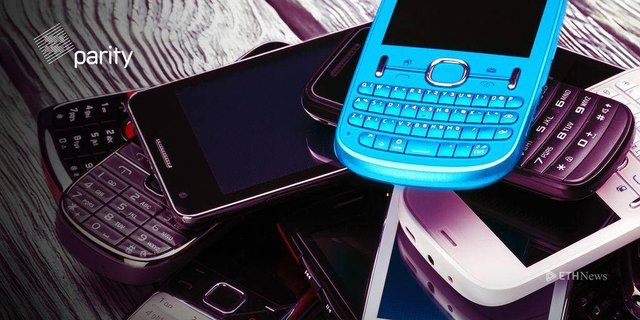Parity signee v2.0 turns old phones into Hardware wallet
The project is still in beta, so don't transfer all your crypto just yet. But maybe start digging out that old iPhone with the cracked screen.
After Gavin Wood's early days with Ethereum, he went on to found Parity Technologies with Jutta Steiner. Now, with 60 staff across nine countries, Parity is creating open-source, blockchain infrastructure and new blockchain-based services. It's working on interoperable new blockchains, testnets, clients for cryptocurrency miners, digital wallets, and now the latest version of Parity Signer.
Parity Signer has already been available for a while. Version 2.0 Beta, announced October 11, 2018, is now ready for download. The application allows users to generate, store, and sign transactions with private keys.
Designed by Brennan Novak, Parity Signer has had a visual upgrade and now supports multiple networks, with additional security to prevent users from signing transactions for an incorrect network.
To secure private keys, Parity Signer must be used offline. The new version includes an "always-on security notification" that will alert if a device is online and therefore not safe to use or to send funds.
Parity Signer is not designed to be used on a smartphone that is in normal use, as such a device would be connected to the net and not secure. Instead, it can be used on an old mobile that has been factory reset and encrypted with a password. Once Parity Signer has been installed it is completely disconnected from the net, and transactions are accomplished by the app creating a QR code that can be scanned by an online computer's webcam.
Since the new application is an experimental approach in beta, Parity recommends only keeping small amounts of cryptocurrency on the device. The creators are also running a bug bounty program for developers to report and be rewarded for finding bugs in the system. Users upgrading from the first version of Parity Signer, launched earlier in 2018, should back up their keys before upgrading.
With hardware wallets costing upwards of $65, the application could be a cost-effective alternative to purchasing a new hardware wallet for storing small amounts of cryptocurrency. It's also an opportunity to repurpose an old smartphone, and who doesn't have one of those hanging around?
The new application can be integrated as a secure device with the MyCrypto wallet and platform. MyCrypto is also adding new features to improve cryptocurrency transactions and functionality. Its latest addition is an integration with Ethereum Alarm Clock, which allows for scheduled transactions.
